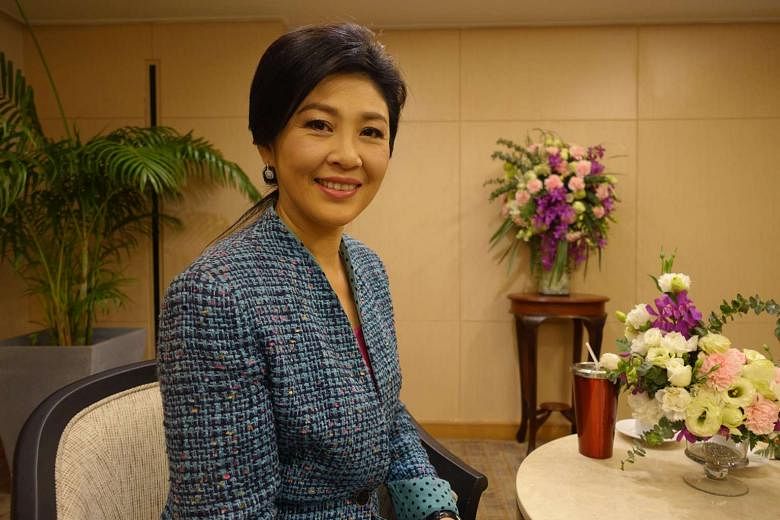BANGKOK (REUTERS) - Former Thai Prime Minister Yingluck Shinawatra said on Tuesday (Aug 2) she rejected a draft constitution sponsored by the generals who toppled her government two years ago, and would vote against it in an Aug 7 referendum.
The referendum is an important step for the military government that took power after the May 2014 coup as it tries to shape a political system that it hopes will end a decade of turmoil in Southeast Asia's second-biggest economy.
Critics say the charter will entrench military rule, weaken democratically elected governments and do little to heal political divisions.
Yingluck's party has already rejected the draft charter, as has the leader of its main rival, and she echoed their criticism of it as undemocratic.
"Having followed the process and content of the draft all along, I see that it isn't in line with democracy," Yingluck said on her Facebook page. "Therefore I reject this draft," she said, adding that she would vote "no" on Sunday.
Yingluck, sister of populist former premier Thaksin Shinawatra, who was also ousted in a coup, was impeached last year by a junta-appointed assembly over a failed rice subsidy programme and banned from politics for five years.
The military has said the proposed constitution will pave the way for a general election in 2017, and will ensure clean, stable politics in a country rocked by years of turmoil as former telecommunications tycoon Thaksin and his followers challenged the military and royalist establishment.
Critics say it is aimed at constraining elected governments largely through an appointed upper house of parliament.
Last week, former premier Abhisit Vejjajiva, leader of the pro-establishment Democrat Party and Yingluck's former rival, also rejected the draft, saying he did not see how it would help the country.
The government has stifled dissent since the coup and is particularly sensitive about criticism of the charter, curbing debate, introducing a law setting a 10-year jail term for anyone campaigning ahead of the vote and detaining activists.
A former member of parliament for Yingluck's party and 10 other people were charged on Tuesday with sedition and criminal association after being accused of trying to spread misinformation about the constitution.
Nineteen supporters of the Shinawatras were also charged on Tuesday for violating a ban on gatherings after attempting to establish referendum monitoring centres that they said were aimed at preventing vote fraud.
Preliminary results are expected on the same day as the vote.
Prime Minister Prayut Chan-o-cha has said an election will be held in 2017 regardless of the outcome.

